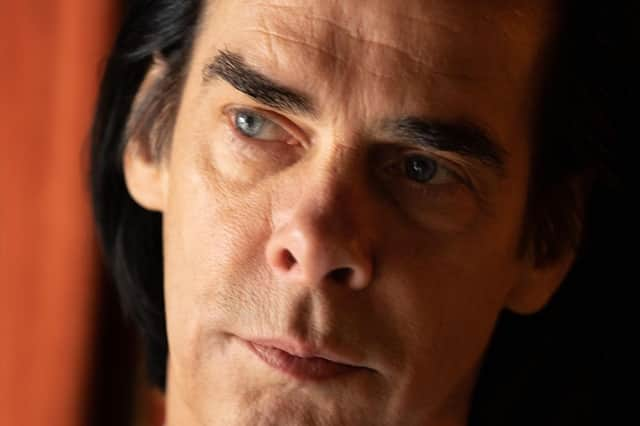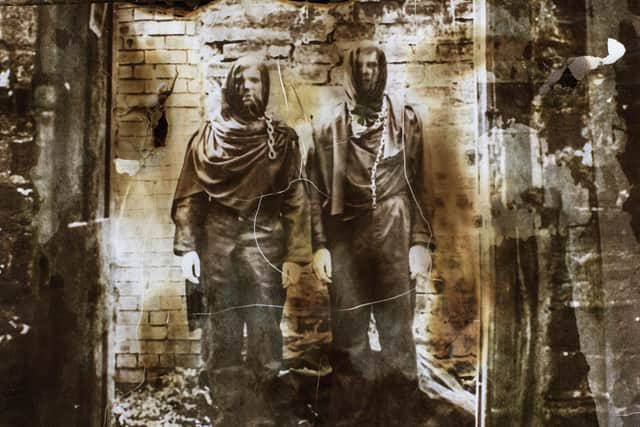Album reviews: Nick Cave | Drake | Gwenno | Alex Rex


Nick Cave: Seven Psalms (Cave Things) ***
Drake: Honestly, Nevermind (OVO Sound/Republic Records) **
Gwenno: Tresor (Heavenly Recordings) ****
Alex Rex: Mouthful of Earth (Neolithic Recordings) ***
Although he might baulk at the thought, Nick Cave must be within touching distance of rock’n’roll canonisation – a revered gothic preacher man who rarely puts a foot wrong creatively and has deliberately chosen to interact more closely with his disciples following the outpouring of compassion he experienced at the death of his teenage son Arthur in 2015.
In May of this year, the loss was compounded by the premature passing of his eldest son Jethro Lazenby. Cave has said before that he responds to trauma by creating work – may he find solace in his latest release, written before Lazenby’s death.
Advertisement
Hide AdAdvertisement
Hide AdSeven Psalms, which is available to stream or as a 10-inch vinyl package, contains what it says on the tin - seven “small sacred songs” written during lockdown, a daily devotional to get you through the week, exploring traditional Christian themes – faith, forgivenesss, mercy - set to ambient music composed by Cave and righthand music man Warren Ellis.


Cave recites these prayers rather than sings them, speaking softly without drama but with a longing for deliverance on How Long Have I Waited against a beatific background wash. He maintains his sober delivery, whether among the distant synthesized howls and heightened beseeching of Have Mercy On Me or the fecund I Have Trembled My Way Deep with its desire to “unpetal me and burst me open wide”.
Such Things Should Never Happen sprouts with the nature imagery of the Romantic poets while I Have Wandered All My Unending Days offers an atmosphere of choral tranquillity. He also finds safe harbour on the desolate yet comforting I Come Alone And To You. Its soothing wordless male vocals extend across to Side B which is entirely given over to a 12-minute ambient meander, recorded during the sessions for the 2021 Cave/Ellis collaboration Carnage, featuring some murmuring meditation from Cave, the occasional darker tone and a celestial conclusion.
Superstar singer/rapper Drake has surprise released a seamless suite of his own but the mood of Honestly, Nevermind is almost exclusively chilled. The breathy repetition and calming pulse of Falling Back is more mantra than song. Texts Go Green is marginally less horizontal but tends to autotuned monotony. Currents plays with the ebb and flow of seduction while Calling My Name dumps the metaphors in favour of an outright come-on. Even the dance tune Massive is a warmer-upper rather than a banger. The trebly Spanish guitar solo on Tie That Binds and solitary guest spot from rapper 21 Savage stand out in this otherwise low impact company.
Gwenno is a Welsh/Cornish singer/songwriter composing across both her parents’ native tongues. According to the Cornish Language Board, her second album Le Kov piqued wider interest in learning Cornish and much of her third album Tresor, written in St Ives shortly before first lockdown, is also penned in this lyrical language, becoming the medium through which she addresses her experience of motherhood. The music is lush, pastoral psych pop appealingly embellished with woodwind, percussive chimes and the occasional motorik rhythm, as on Welsh language track, N.Y.C.A.W., whose full title translates as Wales Is Not For Sale.


Nick Cave is not the only artist to offer a spoken word diversion among this week’s releases. Glasgow-based psych folk mainstay Alex Rex swaps his customary arcane vocal melodies for baleful punk poetry expressing anger, frustration, regret, sarcasm. Diary-like missives, impressionistic visions, cold confessionals and everyday obscenities are soundtracked with disturbing avant-jazz and undulating drones, some of it from his Belsayer Time album, some written by experimental musicians Alastair Galbraith and Richard Youngs or with his former Trembling Bells bandmate Lavinia Blackwall, and accompanied by a book of illustrations by musician/artist Benjamin Prosser.
CLASSICAL
John Ireland - Orchestral Works (Chandos) ****
Given his known passion for classic Hollywood soundtracks it’s easy to appreciate why conductor John Wilson is equally at home with such essentially nostalgic English repertoire as that of John Ireland. The opening track on this warm-hearted tribute by Wilson and his swarthy Sinfonia of London is instant confirmation. The 1946 Overture Satyricon wallows in lyrical sweetness, yet there is also robust sophistication - Elgar heading towards Vaughan Williams - that this performance hotly captures. There is plentiful proof, too, that Ireland was no mere follower of fashion. In A Dowland Suite, transcribed from his brass band version, there is luscious originality. The Thomas Hardy-inspired symphonic rhapsody Mai-Dun is spirited and adventurous, compared to the richly-flavoured Anglicised impressionism of The Forgotten Rite. A London Overture opens like a demonised Cockaigne, beyond which Wilson counters the simple innocence of The Holy Boy with the Elgarian patriotism of Epic March. Ken Walton
FOLK
Bell Hardy: Love Songs (Noe Records) ****
Advertisement
Hide AdAdvertisement
Hide AdEnglish singer-songwriter and fiddler Bella Hardy, prompted perhaps by lockdown, makes a persuasive return to simplicity and to the tradition, with seven long-established songs and four of her own thoughtful compositions. Her light, clear singing is accompanied with restrained empathy by producer Mike Vass on guitars and pianist and clarinettist Tom Gibbs. Hardy’s plaintive, unadorned fiddle sounds over Gibbs’s piano in a wistful opening instrumental, Summer Daylight Winter Darkness, and wry poignancy informs the traditional Hares on the Mountain, while My Johnny Was a Shoemaker skips with lightsome energy over her fiddle. Human tenderness and industrial history inform her own song, The Navigator’s Bride, with lovely clarinet from Gibbs, and there’s compassion, too, in I Think of You, inspired by a First World War silk-embroidered postcard. A highlight, however, is a hoary old favourite, Lowlands Away, delivered a cappella, its resigned heartbreak left hanging in the air. Jim Gilchrist